Reality check
Stomach pain. Diarrhea. Nausea. Jaundice. Chest pain. Difficulty breathing. Hepatitis. Pancreatitis. Depression.
No, those are NOT side effects of Reiki or any other alternative or complementary healing modality. They are some of the possible side effects of a prescription drug worth $5 billion in sales last year. Not only that, but a study released this week showed it "failed to benefit patients" over a 2-year period. And it gets worse. The same study, released by the drug's manufacturers only after pressure from The New York Times and the U.S. Congress, found that when used in combination with another prescription drug for the same purpose, it actually worsened the very condition for which it has so popularly been prescribed. (The Times reports that 60 percent of the estimated five million people now taking the drug worldwide are taking that combination.)
But wait -- there's more: the study leaves the medical world reconsidering the question of whether the condition for which this drug is prescribed is even a problem, or whether it is even associated with the life-threatening condition doctors thought it was.
Let me run that by you once more, just to be clear:
1 million prescriptions a week
5 million patients worldwide
$5 billion (with a B) in sales in 2007
"Failed to benefit patients"
Worsened the problem for which it was prescribed in some patients
That problem might not even be a problem, or associated with the problem doctors thought
Side effects may include: Stomach pain. Diarrhea. Nausea. Jaundice. Chest pain. Difficulty breathing. Hepatitis. Pancreatitis. Depression.
As one doctor told The Times, "People may have been on this drug without the ability to know that there was additional data that may have thrown into question its effectiveness. "That’s extremely unfortunate, and that’s an understatement." In addition to its excellent reporting on the subject, The New York Times also ran an editorial lambasting the drug's manufacturers for "cynically sitting on the results for more than a year."
What does any of that have to do with Reiki? Hang on -- we'll get to that.
"Ask your doctor," the pharmaceutical ads implore us, and lots of people actually do just that. A young man I know who works for a medical answering service takes calls not only from patients trying to reach their doctors to ask for a prescription drug they saw advertised, but even pharmacists trying to contact the physicians of patients who simply went straight to their local drug store to ask for it there.
Yet if you "ask your doctor" about Reiki, she or he is likely to caution that there isn't enough research on it yet, or warn that it might be useless at best, dangerous at worst (much like that headline-making drug, it turns out). Some of those medical professionals who caution against Reiki don't even know that it simply involves the gentle placement of hands on or near the recipient and has never been found to harm anyone. I've encountered doctors who dismissed all natural healing methods as "voodoo," or who won't even listen when their patients ask -- or more likely, tell -- them about the complementary modalities they've tried or are considering.
The Zetia/Vytorin news is a reality check for all of us. Reiki isn't a $5-billion-a-year product available only with a doctor's prescription. It has no shareholders, no dividends, no marketing department, no trade association, no TV commercials, no coupons for a free one-week supply. I've never heard of a Reiki practitioner treating a doctor to an expensive dinner courtesy of Reiki; I've heard of plenty of doctors being wined and dined by pharmaceutical reps.
Scientists, medical and otherwise, like to insist that their work is based on solid, carefully controlled research. There's science, they tell us, and then there's faith. For example, the U.S. government's National Center for Complementary and Alternative Medicine advises that "Since little is known scientifically about Reiki, accepting its teachings about its healing properties and about ki is a matter of faith." Suddenly, doctors are having to ask themselves whether the connection between cholesterol and heart disease, just as one example, might be more a matter of faith as well -- their own faith in a system that might not be as purely scientific as they believe.
From the world of hard science and big business, we move on to this week's Celeb-Reiki feature, which, unfortunately, is a clear example of why some people have trouble taking Reiki seriously. The other day I noticed that a visitor found The Reiki Digest web site via a search on this question:
"Did Princess Di practice Reiki?"
Unfortunately the search did not lead to a conclusive answer to that question. However, it did reveal that there are quite a few Reiki practitioners out there who claim they also channel the spirit of Princess Diana. With apologies, I cannot bring myself to link to any of them -- at least not until I can include a Diana-channeling physician as well. In any case, the late Princess of Wales is this week's Celeb-Reiki.
Just a brief roundup this week, but it's a globetrotting one, starting in the Middle East where Reiki plays a role in a Palestinian/Israeli youth retreat.
We stay in the Middle East region for our next stop, Bahrain, where Frank Arjava Petter, described as a "Reiki 'guru'" is doing some teaching.
From there we move on to the popular vacation destination Hilton Head Island, South Carolina, where a fairly accurate article about Reiki includes this whopping blooper:
"Sources agree that in the mid-19th century, a Japanese physician and monk named Dr. Mikao Usui developed this healing approach...." Which sources agree on that? Usui, who was not a doctor, was born in 1865, and did not develop Reiki until the 20th century.
Reiki also turns up in this month's FitYoga magazine in an article that emphasizes the chakra system and says nothing about Reiki's original hara system. The chakra system does seem to fit a yoga magazine, since its roots are in yoga and ayurveda.
Submissions have been trickling in for the Carnival of Reiki, which debuts January 31. If you have a blog or a web site with a Reiki-related post, click here to submit it to the Carnival of Reiki. The deadline is January 24.











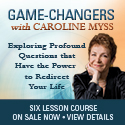
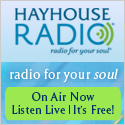








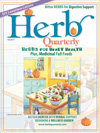


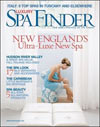
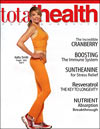






1 Comments:
This doesn't have much to do with the point of the post - but I wanted to say that I've been using Reiki (from myself and others) to help manage the side effects I'm having to deal with in the process of quitting a rather ineffective anti-depressant. Biofeedback has also been helpful. I'm doing this with a view towards never needing another antidepressant again.
Post a Comment
<< Home